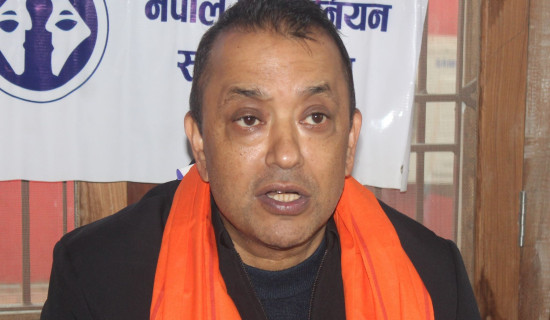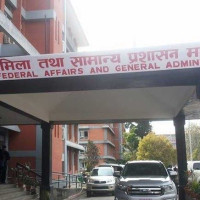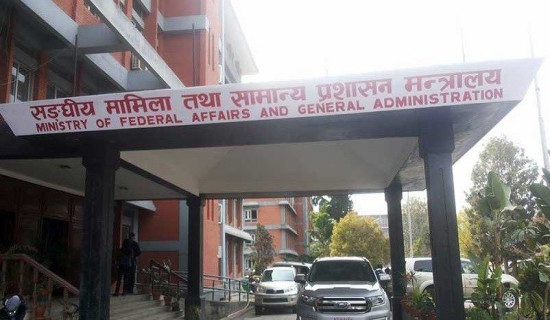- Monday, 26 January 2026
Rational Medicine Use Prevents Resistance
Medicines are among the most powerful tools in a modern medical system that helps to prevent, manage, and cure diseases. However, their effectiveness determines how they are used. Rational medicine use (RMU) not only prevents drug resistance but also unnecessary healthcare expenses. Medicine should be prescribed and dispensed at the right dose, for the right duration, and at an affordable cost. Despite its significance, overprescription, self-medication, and medication misuse continue to be problems in many countries.
Irrational medication usage, however, continues to be a problem worldwide, contributing to avoidable deaths, adverse drug reactions, antimicrobial resistance, and higher healthcare expenses. The overuse, misuse, and inappropriate prescribing of medications are widespread in both developed and developing nations not only necessitates immediate systemic changes and public awareness campaigns but also policy interventions.
Practices
Antibiotic-resistant bacteria have become more prevalent as a result of the overuse of antibiotics, unnecessarily for viral illnesses like the common cold. The effectiveness of antibiotics is under threat because of this global crisis that ultimately results in longer hospital stays, higher medical expenditure, and higher mortality. Antibiotic overuse and misuse, such as taking them for viral infections or skipping doses, have led to a global health crisis in which once manageable infections are now fatal.
Multiple medications are prescribed to patients at the same time in many healthcare settings, especially for the elderly. This raises the possibility of drug interactions, adverse effects, and non-compliance. Without getting proper medical advice, many people self-diagnose and purchase medications, which can result in inappropriate use, masking serious conditions, and possible drug dependency. Often unjustified, the use of multiple drugs in a single formulation can lead to unnecessary exposure to medications and adverse drug reactions. Aggressive marketing by pharmaceutical companies often leads to irrational prescribing habits among healthcare professionals that lead to the prescription of expensive brand-name drugs instead of equally effective generic alternatives.
While traditional medicine plays a vital role in healthcare, without medical supervision unregulated herbal and alternative treatments can result in harmful interactions with conventional medicines. The effects of irrational medicine use on people, healthcare systems, and society at large are profound. Patients and healthcare organisations suffer financial burdens as a result of polypharmacy, unnecessary medicines, and longer treatment. Misuse of medicines increases the risk of adverse drug reactions that lead to hospitalization, disability, or even death. Perhaps the most alarming consequence is that AMR has transformed previously treatable infections into life-threatening conditions that require stronger and more costly treatments.
Benefits
It is, therefore, necessary for all medical professionals to collaborate for patient safety, promote public health, and build a more effective healthcare system with the practice of rational use of medicines. For treating illnesses, reducing symptoms, and enhancing patients' quality of life medicines should be prescribed, dispensed, and used as suggested. Medicines that are used for the correct duration prevent undertreatment or overtreatment. At the same time, when dosage is optimized reduces the risk of side effects and toxicity.
Adverse drug responses (ADRs), which can range from minor side effects to life-threatening disorders, are more likely to occur when people use medications irrationally, such as by taking unnecessary medications or at the wrong dosage. Healthcare professionals can avoid unnecessary drug exposure that could result in adverse effects by complying with sensible prescribing guidelines. This not only lowers the possibility of drug interactions, especially for patients who are taking several prescriptions, but it also avoids long-term issues with some medications, such as kidney damage from excessive painkillers.
It is also important to counsel patients to complete the entire course of antibiotics to stop resistant bacteria from surviving, which eventually lowers the need for stronger and more costly medicines and maintains their efficacy for future generations. Therefore, with the aid of rational medicine usage principles, we can prevent the spread of antibiotic-resistant illnesses and safeguard public health. Global healthcare costs are rising which places a financial burden on individuals, their families and governments. A major contributor to these costs is irrational drug use, which leads to unnecessary medical expenses from overprescription and increased hospital admissions due to complications from improper medication use.
Sensible prescribing
By using sensible prescribing and dispensing procedures, healthcare organisations may maximise resources and lower the cost and affordability of vital medications and individuals can reduce their financial burden and out-of-pocket expenditure. Patients gain more faith in healthcare institutions and medical personnel when medications are administered sensibly. A rational approach to medicine use ensures that patients receive appropriate treatments that deliver effective results. At the same time, unnecessary side effects and drug failures are minimised, boosting confidence in prescribed therapies. Doctors, pharmacists, and healthcare providers make decisions based on scientific evidence rather than external influences, such as pharmaceutical marketing.
Long-term medicine use is necessary for chronic conditions like diabetes, hypertension, and asthma. However, poor disease control and major consequences can result from inappropriate pharmaceutical practices, such as missing doses, taking too many medications, or taking many unnecessary drugs. Stronger patient-doctor-pharmacist relationships and long-term adherence to treatment programmes are fostered by a healthcare system that places a high priority on the use of rational medicine. With the help of rational medicine use, we can create a healthy society where medicines continue to be accessible, affordable, and effective for future generations.
(Dr. Lohani is the executive director at the Health Concern. lohanis@gmail.com)




-square-thumb.jpg)




-original-thumb.jpg)




